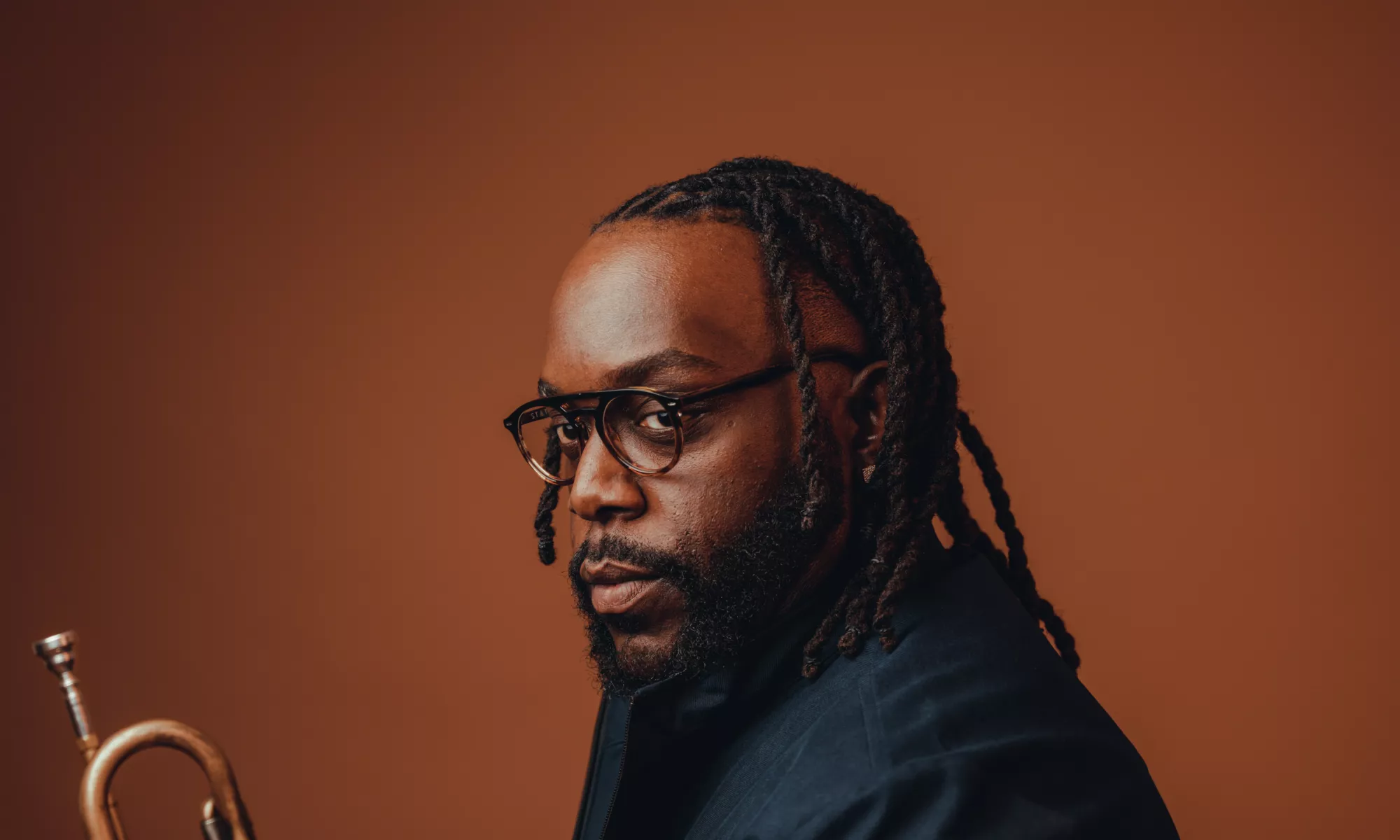
Marquis Hill
Marquis Hill has worked tirelessly to break down the barriers that divide musical genres. Contemporary and classic jazz, hip-hop, R&B, Chicago house, neo-soul — they all “come from the same tree,” he says. “They simply blossomed from different branches.” As a trumpeter, composer, and bandleader, Hill brings these styles together, showcasing the essential elements of the profound African American creative heritage to which he belongs.
For Hill, playing and listening without limits has long been an instinct. “It comes naturally; that’s the way I hear the music,” he says. “I came up in a household where my mom played Motown, R&B, Isley Brothers, Barry White, Marvin Gaye. Then I received my first jazz record, by Lee Morgan, and that was added to the collection. ... I truly believe that the music is all the same.”
Born in Chicago in 1987 and raised on the city’s culturally rich South Side, Hill began playing drums at age 4 before switching to trumpet in the sixth grade. He attended high school at Kenwood Academy, excelling in its revered jazz performance program, and was mentored by Bobby Broom, Willie Pickens, Tito Carrillo, and other Chicago greats through the Ravinia Jazz Scholars program. Hill earned his bachelor’s degree in music education from Northern Illinois University and his master’s degree in jazz pedagogy from DePaul University. During college, he made gigs and sessions around Chicago, jamming with and absorbing wisdom from the likes of Fred Anderson, Ernest Dawkins, and Von Freeman. Even then, Hill was known in town as a stunningly gifted trumpeter with a soulful, highly textured tone.
Well before winning the Thelonious Monk Institute of Jazz International Trumpet Competition in 2014 — arguably the most important jazz competition in the world — Hill’s reputation for brilliance was firmly established in the Midwest as a member of the Chicago Jazz Orchestra, an in-demand sideman, and a bandleader. He also developed into a determined young record label owner, releasing five acclaimed discs through his Black Unlimited Music Group imprint.
A move to New York in 2014 helped Hill gain wider exposure and access to new opportunities, though he frequently returns to his hometown of Chicago for gigs and projects.
